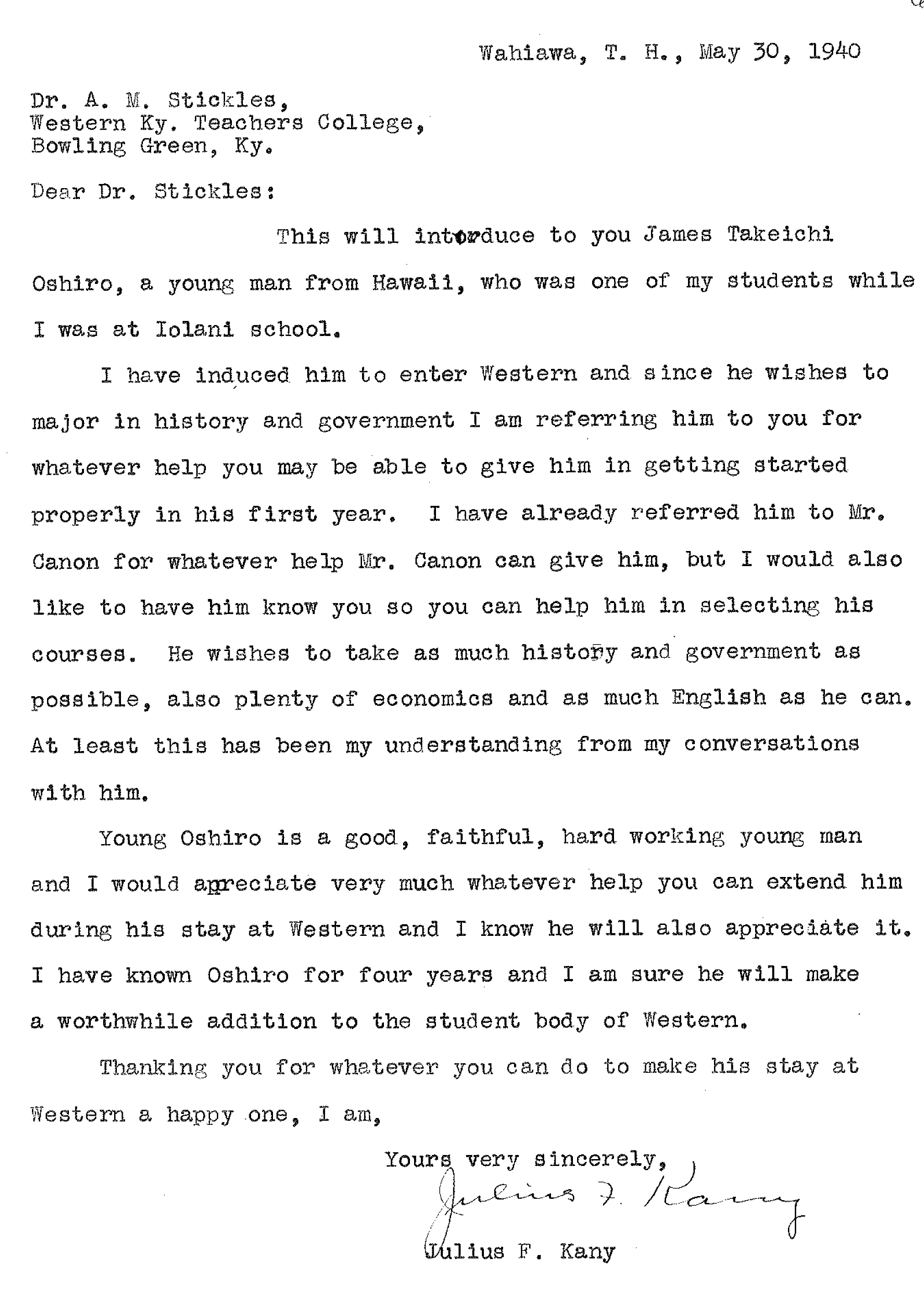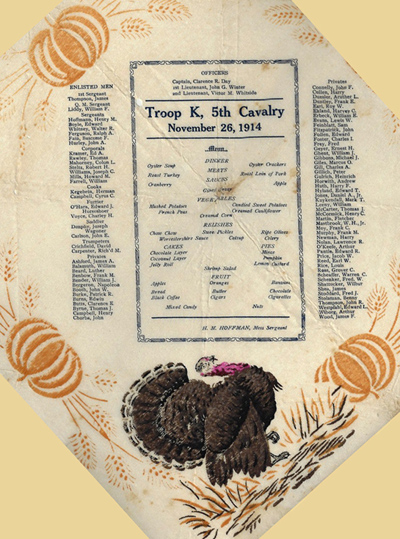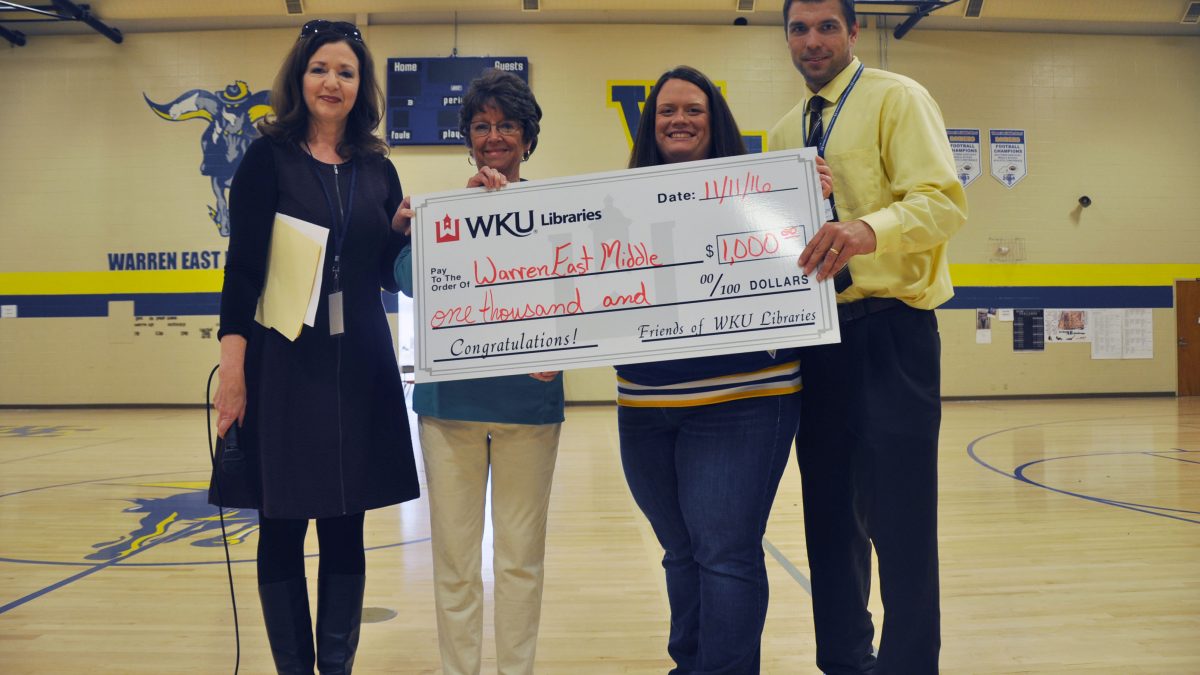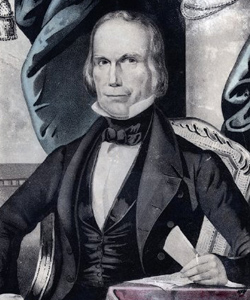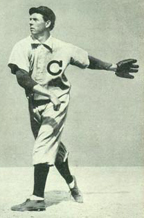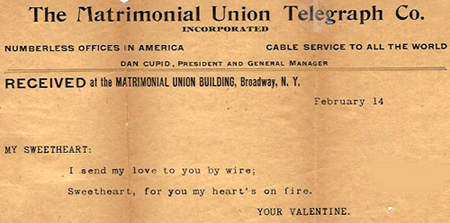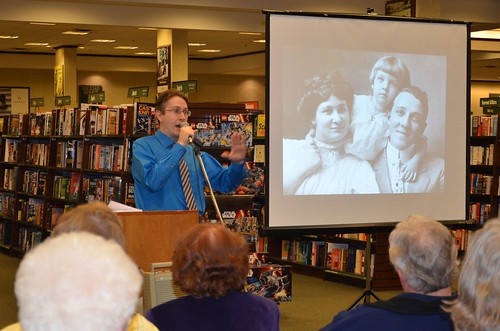Alumni often encourage others to attend their alma mater. In 1940, Julius Kany persuaded James Takeichi Oshiro to attend Western Kentucky State Teachers College in Bowling Green, Kentucky, even though it was far away from his home in Hawaii. James Oshiro enrolled at Western in September 1940, but this wasn’t just any time in history, and James Oshiro was distinctive among the student body at the time due to his Japanese ancestry. The attack on Pearl Harbor, Hawaii, by the Japanese on December 7, 1941, prompted the United States to enter World War II. The severity of the attack engendered fear and hatred for Japan, and, by extension, anyone who looked Japanese.
In the official history of WKU, Lowell Harrison described James Oshiro and his situation. “Born in Hawaii of Japanese parents, he lived in Japan for sixteen years before returning to Hawaii. Nine years later he was persuaded by a Western alumnus to go to the Hill. The short, slight, twenty-six-year-old student enrolled in September 1940 to major in history. His financial support from a brother-in-law in Honolulu was suddenly cut off after the Pearl Harbor attack, and no one could predict the reaction of Western students and Bowling Green townspeople. ‘It breaks my little heart even to think of this horrible war between two nations,’ James wrote President Garrett in late December; he would gladly fight for the United States, ‘and I am sure that God will forgive me having fought against my parents’ country.’” (2) Continue reading

